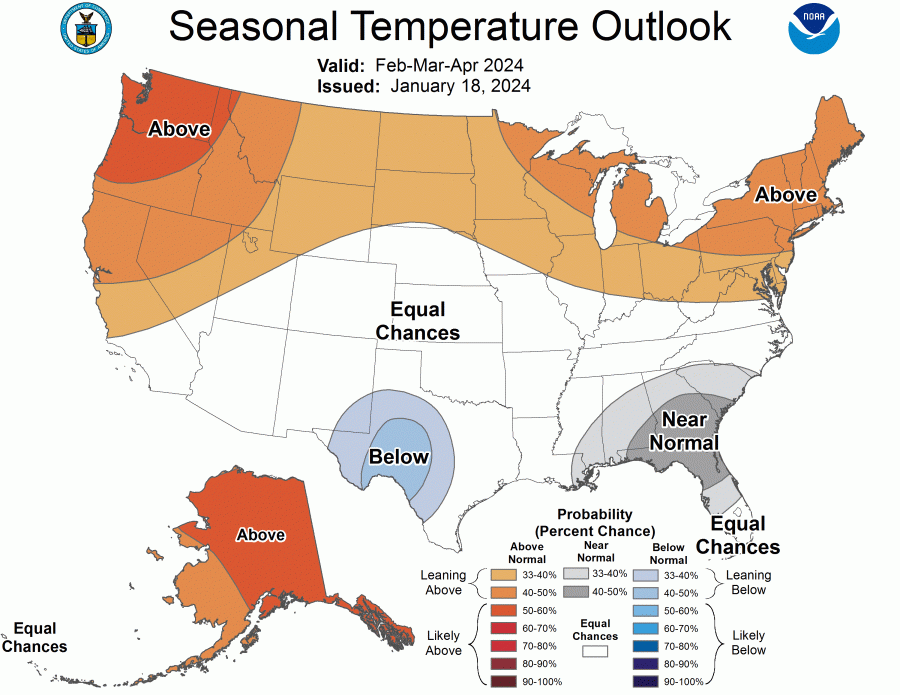(NEXSTAR) – If you’re sick of winter, there’s some good news in the latest seasonal outlook released Thursday by national forecasters – at least for the residents of all but one state.
The outlooks are created by the Climate Prediction Center, a division of the National Oceanic and Atmospheric Administration (NOAA). They give us a glimpse at what broad weather patterns we can expect over the next three months.
According to the outlook, many of the states currently experiencing hard freeze warnings and heavy winter weather could soon be blessed with warmer weather. The northern half of the country is leaning toward seeing above-average temperatures between February and April.
The highest chance of seeing a warm late winter and early spring is found in the Pacific Northwest. Washington and Oregon have a 40% to 60% chance of seeing hotter-than-normal weather over the next three months.
Much of Texas is predicted to see the opposite pattern play out. West Texas especially is leaning toward seeing below-average temperatures between now and April.

Meanwhile, the Gulf states are likely to see near-normal temperatures. The rest of the country, shown unshaded on the map above, has equal odds of a hot season, cold season or a normal season.
The precipitation forecast, also released Thursday, shows the lingering impact of El Niño, even as it’s expected to start weakening soon.
During an El Niño winter, the Pacific Northwest and Ohio Valley typically see less rain and snow. That pattern appears likely to continue through April, according to the outlook.
Meantime, Southern states are most likely to see a wet winter continue into spring. Southern California, the Plains States and much of the East Coast also have chances of more rain.

National forecasters are expecting El Niño to phase out at some point between April and June, the Climate Prediction Center said last week. There’s a 73% chance El Niño ends during that time period in the spring or early summer, according to the new outlook.
Copyright 2023 Nexstar Media Inc. All rights reserved. This material may not be published, broadcast, rewritten, or redistributed.














